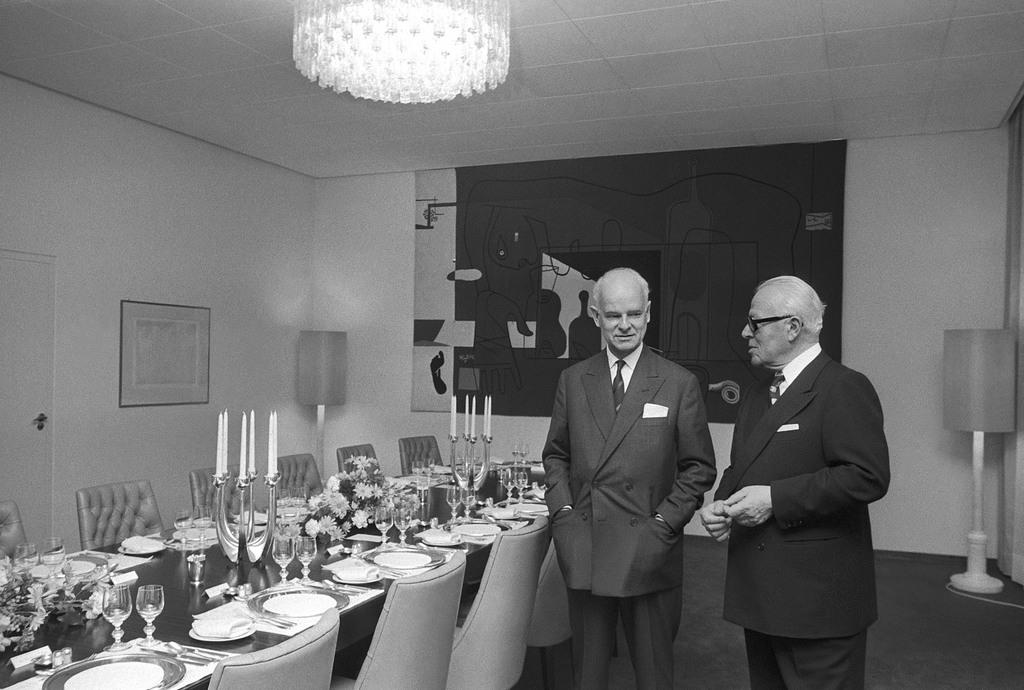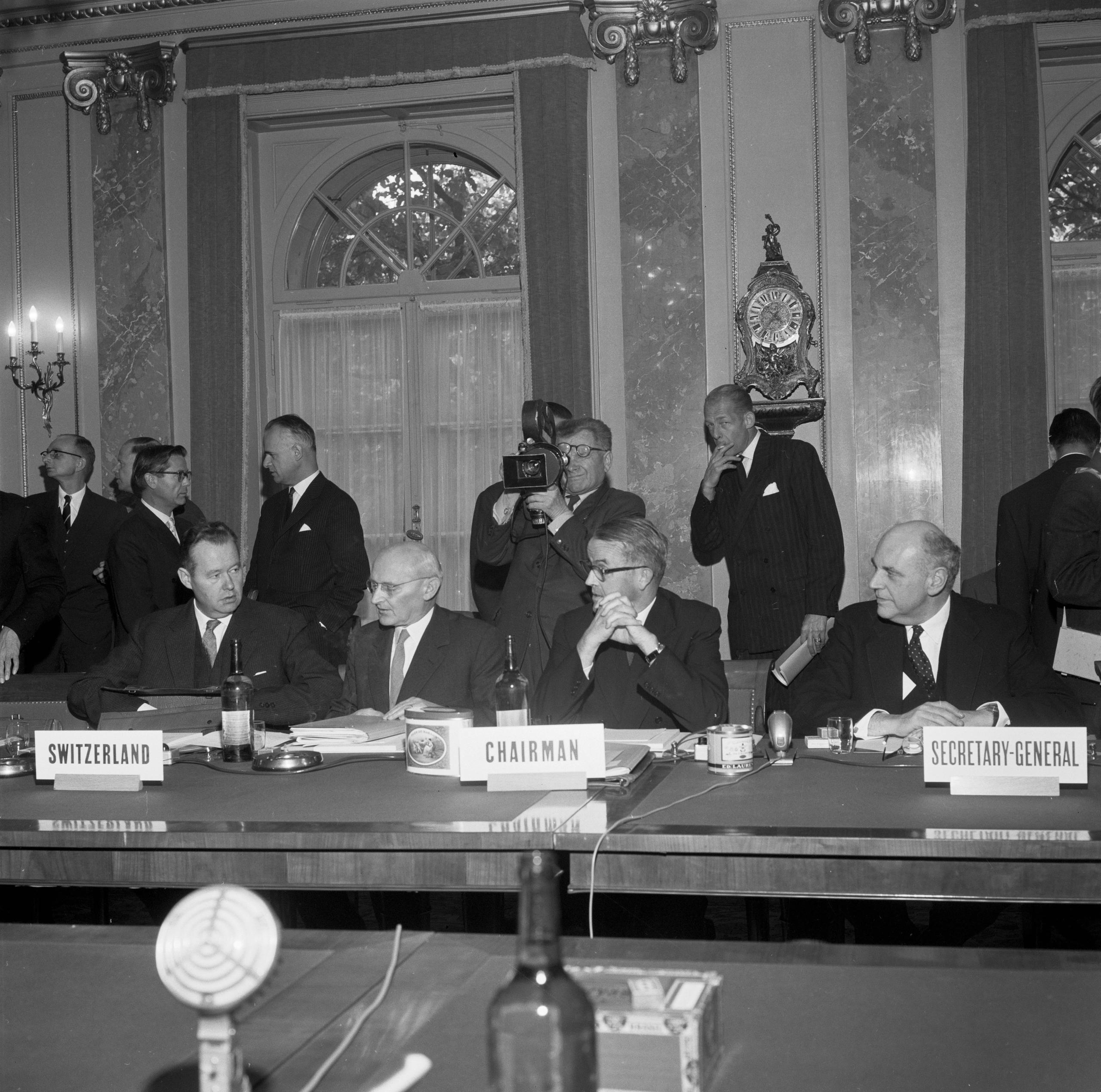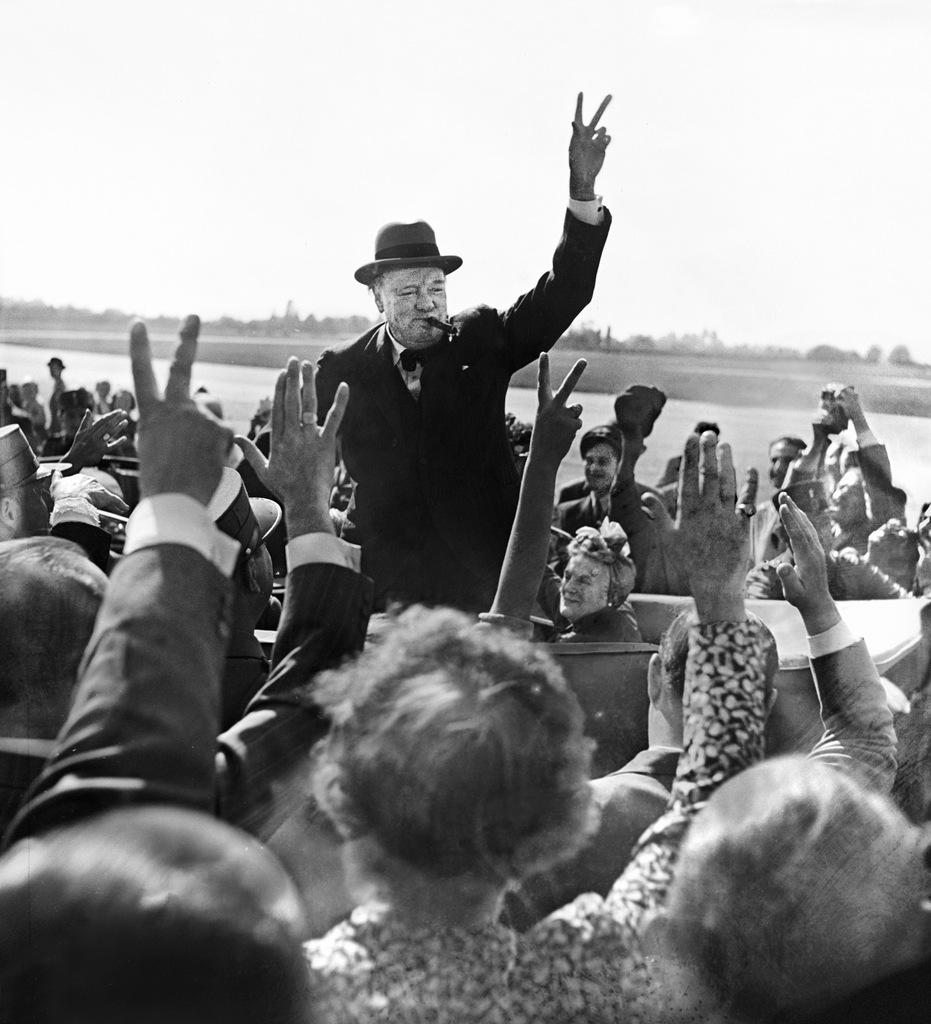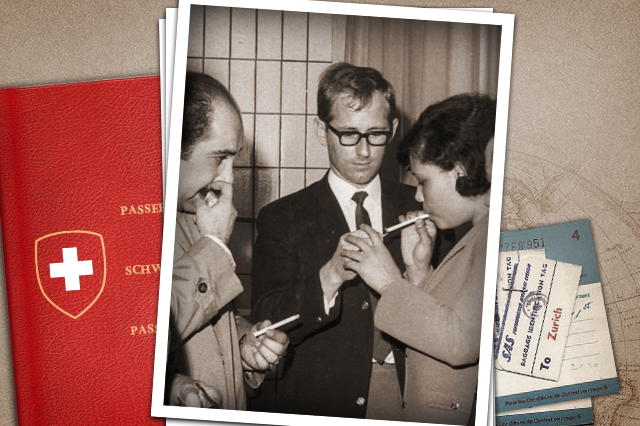How the Swiss and Brits have dealt with Europe

In recent years, Britain and Switzerland have both had complicated relationships with the European Union, as seen recently with Brexit and Swiss-EU talks over a long-term framework accord. But from the 1960s onwards, both countries’ approach to European integration differed significantly.
In his 1975 report on the political situation in BritainExternal link, Swiss ambassador to London, Albert Weitnauer, wrote: “The impression that the British have of themselves is very strange. They see their country and the British people as totally unique, superior to all other people and regions of the world. And the image they have of their relationship with Europe is distorted (and this is despite confirmation of their membership of the European Community in a recent referendum).”
The Swiss ambassador continued: “The British have not really taken on board the ideas of Arnold Toynbee and Winston Churchill, which describe an absolute truth, namely that from the beginning England [sic] was an essential part of Europe and it has remained so right up to today. This deep-rooted rejection of themselves as one of the many people of Europe is even more paradoxical, especially as in England the strengths and weaknesses of the European way of life have been preserved there better and more clearly than some of the more ‘Americanised’ countries of continental Western Europe.”
At the end of his report, however, Weitnauer admitted that after five years in London, he had finally understood and appreciated “the extremely kind British people”. To him, it was always “merry old England”, even if the country was “without much power or influence”.
Yet the Swiss diplomat, who was about to return to Bern, was aware of Britain’s contradictions: a country with a glorious imperial past and a present which was characterised by a difficult economic situation and a contrasting relationship with Europe.

Two years earlier, in 1973, Britain had left the European Free Trade Association (EFTA), of which it had been a founding member with Switzerland in 1960, to join the European Economic Community (EEC). However, this was accompanied by strong political upheavals: the British Labour Party, which returned to power in 1974, renegotiated Britain’s agreement with the EEC and submitted it to a referendum the following year. The result was quite different from the 2016 Brexit vote: in 1975, 67.2% of UK citizens agreed to remain in the European Economic Community.
After the 1975 vote, Britain and Switzerland took separate paths within the European integration project. Prior to that, “the two countries’ paths had crossed several times”, Franziska Ruchti, a collaborator at Swiss Diplomatic Documents (Dodis), told swissinfo.ch.

Without downplaying Churchill’s famous speech in Zurich in 1946, in which the former and future Prime Minister outlined his wish to see a United States of Europe emerge (although he was careful not to include Britain in it), in the mid-1950s Switzerland supported Britain’s idea of a vast free-trade area in Western Europe.
“The main objective of both countries was economic co-operation in Europe; they were opposed to supranational structures,” said Ruchti.
The 1957 Treaty of Rome, which led to the creation of the EEC, forced states outside the Common Market to choose another option. On January 4, 1960, Austria, Denmark, Norway, Sweden, Portugal, Switzerland and Britain signed an agreement in Stockholm to establish the European Free Trade Association (EFTA).
As Robert Kohli, secretary-general of Switzerland’s foreign ministry, observed a few months earlier: “Given the impossibility for Switzerland to join the Common Market, Switzerland has the choice between isolation or collaboration with the seven [states that will form EFTA]”.
Within EFTA, Switzerland worked closely with Britain. However, their interests were not identical. “In the context of decolonisation, economic reasons pushed London to move closer to the EEC,” Ruchti said.
Search for an alternative
Britain began talks to join the EEC in July 1961. London’s change of course clearly weakened EFTA. In response, a few months later Switzerland decided to submit its own request for closer association with the EECExternal link. But British requests (a second application for membership was submitted in 1964) were repeatedly vetoed by French President Charles de Gaulle.
It was only after De Gaulle resigned in 1969 that the situation was unblocked for Britain, but also for Denmark and (non-EFTA member) Ireland. In 1973, the three countries joined the EEC, while in Norway voters rejected its country’s accession plans at the polls.
Switzerland, which had previously explored its room for manoeuvre, meanwhile signed a free-trade agreement with the EEC in July 1972.
“Indirectly, it is thanks to Britain that Switzerland moved closer to the EEC and signed a free-trade agreement, which remains a cornerstone of relations between Bern and Brussels,” said Sacha Zala, director of Dodis.

Translated from French by Simon Bradley

In compliance with the JTI standards
More: SWI swissinfo.ch certified by the Journalism Trust Initiative











You can find an overview of ongoing debates with our journalists here . Please join us!
If you want to start a conversation about a topic raised in this article or want to report factual errors, email us at english@swissinfo.ch.